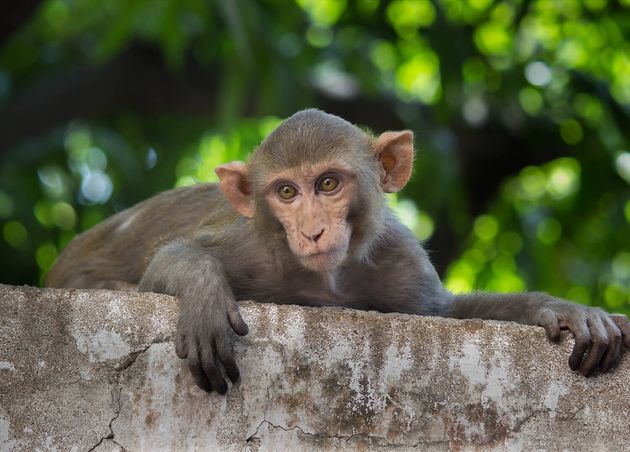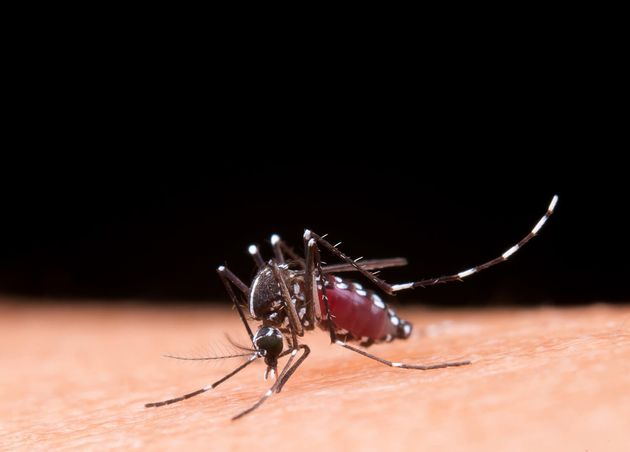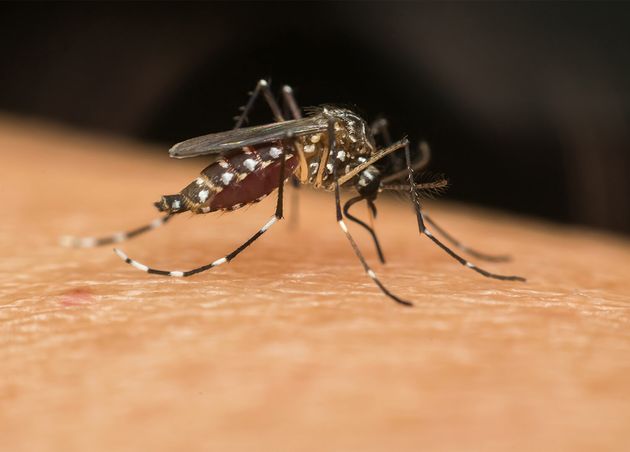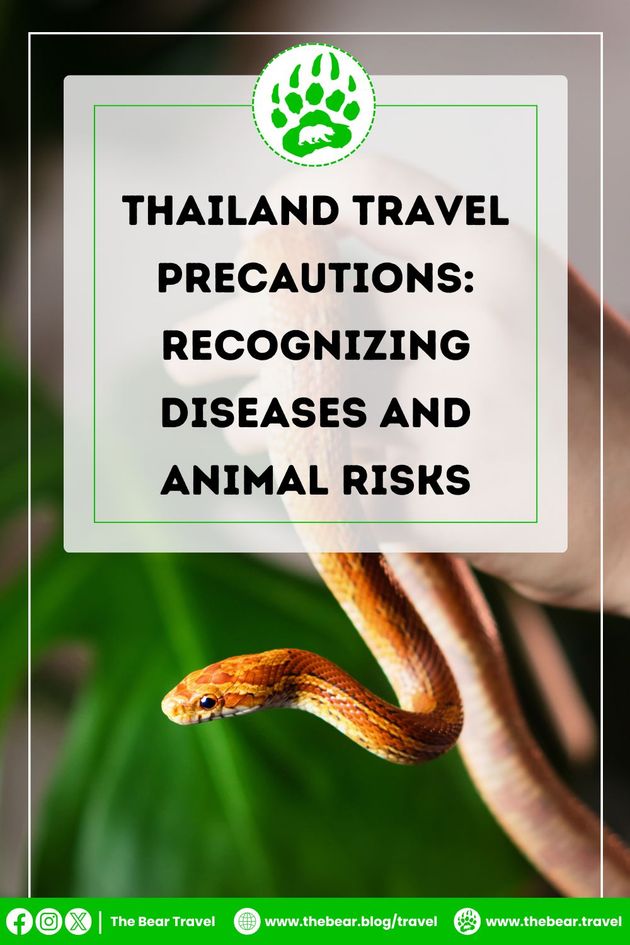Thailand Travel Precautions: Recognizing Diseases and Animal Risks
Are you hoping to explore Thailand's breathtaking wildlife on your upcoming trip? Hold tight because I will share astounding knowledge about Thailand's most deadly creatures and tropical illnesses.
Thailand is home to many fascinating animals. Most animals you encounter will be amiable and won't hurt you, but some may be dangerous. Even if there's a little risk, knowing what animals and tropical diseases you may encounter is vital to be prepared.
We don't want to scare you. Although it is uncommon to encounter these illnesses or animals in Thailand, you should be aware of them and get medical help immediately.
Exploring Wildlife in Thailand
#1 Macaque Monkeys
We've all seen them: the cheeky macaques that stray from Thailand's roadsides and around its temples. Although they may have a cute appearance, these animals can be quite aggressive when they feel threatened.
They may appear amiable, particularly since they are accustomed to people and won't run from you if you carry food, but they are still wild animals. They can harbor diseases like rabies, which is what makes them dangerous. Although macaque attacks are uncommon, they occur because mothers fiercely protect their young.
They can be found in many jungle areas, but Lopburi in central Thailand is a well-known location where you can see them. They also reside on the southwest side of Koh Lanta, close to Bamboo Beach, and Koh Phangan, between Baan Tai and Haad Rin. You may encounter a few combative at the Tiger Cave Temple in Krabi.
#2 Stray Dogs
You would unlikely encounter a particularly dangerous hazard in Thailand from a wild animal. One of the main threats may come from stray dogs, also known as wild dogs, that roam particular areas.
Stray dogs are wild animals that occasionally live in packs; however, some canines are owned and kept as guard dogs. In Thailand, there are thought to be about 800,000 stray dogs. In addition to frequently carrying diseases like rabies, the wild groups of stray dogs can injure unsuspecting tourists with their vicious attacks.
Even though most stray dogs are accustomed to people and avoid them, passing automobiles and scooters might occasionally frighten them. Despite their cute appearance, dogs can be unpredictable; therefore, avoiding approaching a stray dog is better. Where possible, try to avoid any interactions with these animals.
- 🐻 Remember:
- If a stray dog bites you, you should get medical help for your wounds. You might also need to get vaccinated against rabies and receive a tetanus shot.
#3 Bull Shark
In the deep waters off the coast of Thailand, there are most likely at least nine different species of sharks. Despite their extreme fierceness, people are lucky not to encounter great white sharks or tiger sharks in Thailand.
Bull sharks, however, are often considered the species most likely to harm humans due to their aggressive behavior and ability to travel up rivers. These sharks are notorious for their ferocity and migratory behavior. They can reach a maximum length of ten feet. People are more likely to encounter them in coastal locations with rather shallow waters.
In total, over 100 human attacks have already been linked to them, 25% of which have been fatal. As a result, this shark species is among the most dangerous in Thailand.
#4 Malayan Krait Snake
The Malayan Krait Snake is commonly referred to as the Blue Krait. It's crucial to give them some space because of their extreme venom. They can reach a length of more than one meter and are distinguished by their black and white stripes.
Although they would rather dwell in fields with crops, they can occasionally find their way into human settlements, so you should be looking for them. Unless left untreated, their bites do not pose a significant risk to people.
The Malayan Krait Snake can be found in Thailand and other Southeast Asian countries. It prefers to congregate in various environments, including hills and plains. It is usually not found in Krung Thep Maha Nakhon (Bangkok).
- 🐻 Remember:
- If a Malayan Krait bites you, get medical help right away. Their poison can be extremely poisonous and even fatal, so get medical assistance as soon as possible because time is of the essence.
Diseases in Thailand
#1 Japanese Encephalitis
The Japanese encephalitis virus (JEV) is a brain infection caused by Japanese encephalitis (JE). Although most illnesses cause little to no symptoms, brain inflammation can occasionally happen. Seizures, headaches, fevers, vomiting, and confusion are possible symptoms. This happens 5 to 15 days following infection.
Mosquitoes, particularly culex-type mosquitoes, are the primary vectors of JEV transmission. Pigs and wild birds primarily spread the virus. Most cases of the illness occur outside of cities. Tests on blood or cerebrospinal fluid are used to make the diagnosis. The safe and effective Japanese encephalitis vaccine is used to prevent the illness. Another precaution is to avoid mosquito bites. Once infected, you can only get supportive care, as there is no known treatment.
In humans, the symptoms may begin with severe rigors. Other non-specific symptoms of this illness that might last one to six days include fever, headaches, and malaise. Acute encephalitic stage symptoms include hemiparesis, convulsions, neck rigidity, cachexia, and an elevated body temperature between 38 and 41 °C (100.4 and 105.8 °F).
Travelers who intend to visit remote regions of Thailand or stay longer than a few days should consider receiving a Japanese encephalitis vaccination. Seeking guidance from a reliable healthcare professional is crucial to preventing Japanese encephalitis and receiving vaccinations against it.
#2 Dengue
Dengue fever, often pronounced as "DENgee" fever, is a crippling illness spread by mosquitoes and caused by one of four similar dengue viruses.
The bite of an Aedes mosquito, known for carrying the dengue virus, causes dengue illness to spread. It becomes infected when such a mosquito bites someone whose blood contains the dengue virus. It cannot be transferred directly from one individual to another.
Avoiding mosquito bites is the greatest way to avoid contracting the disease, especially if you live in or visit a tropical region.
- Therapy for Dengue Fever
- Dengue infection cannot be cured with any particular medication. Acetaminophen-containing pain relievers are recommended if you suspect dengue fever, as aspirin-containing medications may exacerbate bleeding.
- You should also need to get lots of rest and drink lots of water, and within the first 24 hours after your fever calms, you should visit a hospital immediately to be examined for any potential consequences.
- Dengue infection cannot be cured with any particular medication. Acetaminophen-containing pain relievers are recommended if you suspect dengue fever, as aspirin-containing medications may exacerbate bleeding.
#3 Malaria
Humans and other vertebrates are susceptible to malaria, an infectious disease spread by mosquitoes. Symptoms of human malaria usually include fever, exhaustion, nausea, and headaches. In extreme situations, it may result in coma, convulsions, jaundice, or even death.
Symptoms typically appear 10-15 days after being bitten by an infected Anopheles mosquito. If not appropriately treated, some people may experience disease recurrences months later. Reinfection typically results in less severe symptoms in people recently recovering from the infection.
This partial resistance will wear out if the person is not exposed to malaria for months or years.
- Symptoms
- Adults with malaria typically experience headache, weariness, abdominal discomfort, chills, muscle pain, and fever—typically in strong, sporadic bouts lasting about six hours, followed by a period of sweating and relief from fever.
- Children typically experience vomiting, cough, fever, and diarrhea. Medications, getting rid of mosquitoes, and avoiding bites are some ways to prevent malaria.
- Many drugs can help travelers visiting areas where malaria infection is widespread by either preventing or interrupting the disease. Many of these drugs are also used to treat malaria.
- Adults with malaria typically experience headache, weariness, abdominal discomfort, chills, muscle pain, and fever—typically in strong, sporadic bouts lasting about six hours, followed by a period of sweating and relief from fever.
🧑🎓 Quick Fact!
The incidence of malaria in Thailand has declined dramatically over the last ten years, with only about 3,000 cases reported.
Travel Thailand Today: Stay Safe!
Thailand's rich biodiversity, ancient islands, dense jungles, Muay Thai, expansive national parks, gorgeous coral reefs, and stunning coastlines have earned it the title "land of wonders." However, you should stay safe and apply caution when exploring the country to avoid potentially dangerous animals and diseases.
The problem is that, despite their rarity, you can run into some of these dangerous species in Thailand when touring the country's coastal waters, lounging on land, or staying in a resort. But that doesn't mean you have to postpone your trip to Thailand.
We are providing you with this information so that you can prepare yourself, anticipate attacks, and know what to do in such a situation. So stay safe while fully enjoying your travel to Thailand.
Dr. Theodore (Professor Bear)
Hi! I'm Dr. Theodore Bennet (Professor Bear), your scholarly travel companion who brings history to life with immersive tours and expert guides. With a Ph.D. in History and years of travel writing experience, I offer authoritative insights for unforgettable journeys.
The Bear Travel | Experience like a Local
A fast-growing Thailand Travel Blog written by Expats and Thais since 2017. We will share our experiences and ideas from an insider point of view for you to create your own unique Thailand experience.
For the latest news and events about The Bear Travel, follow us on Facebook, Instagram, Twitter, Pinterest, or YouTube.
For any issues, concerns, or queries, don’t hesitate to CONTACT us.
Recommended for you
White Flower: A Stylish Bakery & Restaurant in Bangkok
Tle (Hungry Bear)
Top 10 Best and Most Popular Hotels to Book in Bangkok
Rowan (Guinness Bear)
Living Abroad: How to Adjust to a New Culture and Language?
Lifestyle Bear
Thai Shrimp Recipe: A Breathtaking Culinary Journey
Riley Sinclair (Digital Aqua Bear)























